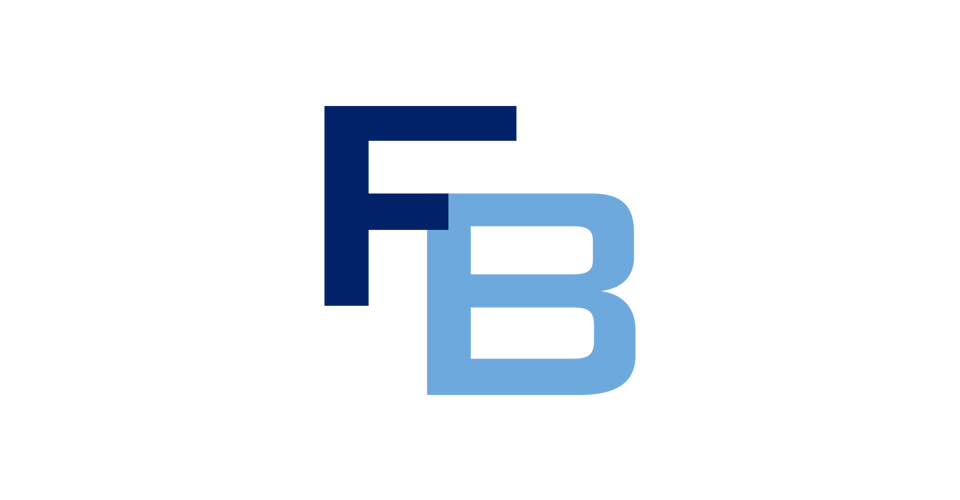FIRST BANK IS SERIOUS ABOUT YOUR SECURITY.
First Bank will NEVER text, email, or call you to request personal information, such as Social Security Number, Credit Card Numbers, Passwords, etc.
Please take a look at the below resources for important tips and links to help you learn how to protect yourself.
Banks Never Ask That!
Banks Never Ask That! is a great consumer resource provided by the American Bankers Association (ABA). It shows you the many ways fraudsters will try to catch you off guard. Check out their website https://www.banksneveraskthat.com for great tips and fun interactives and read their in depth piece on Phishing
FRAUD PREVENTION & EDUCATION RESOURCES
FRAUD PREVENTION FOR SMALL BUSINESS
FinCEN Alert! FinCEN has been notified of recent fraudulent attempts to solicit information from individuals and entities who may be subject to reporting requirements under the Corporate Transparency Act. The fraudulent correspondence may be titled "Important Compliance Notice" and asks the recipient to click on a URL or to scan a QR code. Those e-mails or letters are fraudulent. FinCEN does not send unsolicited requests. Please do not respond to these fraudulent messages, or click on any links or scan any QR codes within them. Learn more on FinCEN's website: https://www.fincen.gov/boi
Fraud prevention for Small Businesses: https://www.ftc.gov/tips-advice/business-center/small-businesses
Best Practices and Tips for Combatting Business Check Fraud
Wire Fraud & email hacking/phishing attacks are on the increase. Do NOT solely rely upon email instructions, as they may have been unknowingly altered. We recommend that you verbally verify all details of the instructions directly with the recipient. Use only known contact information, NOT information provided in the email to verify instructions prior to sending funds. It is important that you verbally verify financial instructions prior to sending to avoid a potential loss.
Best Practices for Combatting Wire Fraud
Fraud Prevention for Consumers
- 10 Things you can do to avoid fraud: https://www.consumer.ftc.gov/articles/0060-10-things-you-can-do-avoid-fraud
- Check with the FTC for information on all of the latest scams: https://consumer.ftc.gov/scams
- FDIC Consumer Resources: https://www.fdic.gov/resources/consumers/index.html
- Free Annual Credit Reports: https://www.annualcreditreport.com or call 1-877-322-8228
- Best Practices and Tips for Combatting Personal Check Fraud
- Cyber-Savvy Resource Sheets - First Bank partners with Senior Housing Crime Prevention Foundation to offer you tips on protecting yourself and your loved ones from various types of fraud.
Mail fraud is on the rise! Know what to look for and how to protect yourself.
- Check Washing and Check Theft
- USPS information on mail fraud: https://faq.usps.com/s/article/Mail-Fraud
- Mail fraud prevention tips: Mail Theft | USPIS
- Report mail fraud:https://ehome.uspis.gov/fcsexternal/default.aspx
- Victim of Money Order theft? USPS covers what to do next: Money Orders | USPS
Romance Scams occur when a criminal adopts a fake online identity to gain a victim’s affection and trust. The scammer then uses the illusion of a romantic or close relationship to manipulate and/or steal from the victim. Watch this short video on Romance Scams to learn more.
Identity Theft
Over 1.5 million individuals a year are victims of identity theft and the numbers continue to grow. Identity theft occurs when a criminal steals your personal information and uses it to commit fraud. They can then apply for credit in your name and then destroy your credit by not paying creditors.
Even though First Bank uses enhanced security measures to protect your information, there are steps that you should take to avoid becoming a victim of identity theft yourself:
- Protect your personal and financial information, never share Social Security Numbers, PIN’s, passwords, or credit or debit card numbers.
- Check your credit report annually. You are entitled to one free credit report per year from the three reporting bureaus.
- Protect your computer by using firewalls, antivirus software and applying security updates.
- Change online passwords regularly and use strong passwords.
- Beware of callers requesting personal information.
- Review your bank and credit card statements frequently. Report any unusual activity immediately.
- Monitor your account using Online and Mobile banking to check transactions and activate notifications.
- Learn more on the FTC's Identity Theft page: https://consumer.ftc.gov/features/identity-theft
What to do if you become a victim of Identity Theft:
- Report any suspected fraud to First Bank (877)-821-2265, Option 2) and credit card issuers immediately to close accounts.
- Contact the Fraud unit of the three credit reporting agencies to place an alert on your credit report.
- Equifax - (800) 525-6285
- Experian - (888) 397-3742
- TransUnion - (800) 680-7289
- Report the Fraud to the Federal Trade Commission at https://reportfraud.ftc.gov/#/
- File a police report.
See our section on Fraud Prevention & Education Resources for more helpful information about protecting yourself from fraud.
Phishing, Smishing, & Spoofing
One of the ways commonly used to steal personal information is called “Phishing”. Phishing is a scam designed to trick people into revealing their personal information. And, since the scam is coming from a person or business claiming to be a trustworthy source, phishing has a high success rate.
A “phisher” sends an email designed to look like a legitimate email that would be sent by a reputable source (like First Bank). The message will ask you to “validate” or “confirm” your account information or provide a link that will take you to a counterfeit banking site. The fake site would then ask you to provide your log in credentials which would then be stolen. In either case, any information provided would then be used to commit fraud. Other scams request that the email recipient call a phone number for verification and will request and record the information for fraudulent uses.
“Smishing” is a combination of the terms "SMS" and "phishing." It is similar to phishing, but refers to fraudulent messages sent over SMS (text messaging) rather than email. Smishing scams frequently seek to direct the text message recipient to visit a website or call a phone number, at which point the person being scammed is enticed to provide sensitive information such as credit card details or passwords.
Another risk to personal information involves website “spoofing”. In this case, a website is created by an Internet fraudster that mimics a legitimate site which is designed to steal personal information. When the victim either incorrectly types the web address or clicks on a link in an email, they are routed to this fake website where they are asked for personal information.
How to protect yourself from cyber threats:
- Beware of fraudulent emails - if you are not sure, call before you click!
- Choose passwords & security questions carefully and don’t use the same password for all accounts.
- Be careful what information you share online, such as mother’s maiden name, place of birth, and address.
- Secure your mobile device with password or lock pattern.
- Avoid banking over public Wi-Fi hot spots.
- Make sure your computer software is up to date.
- Use secure trusted websites.
First Bank does not request personal information (Social Security Number, account numbers, credit card numbers, passwords, etc) via email, text message, or telephone. If you receive an email or call claiming to be from First Bank, contact your local office locations or call tel:(877) 821-2265, option 2.
Mobile & Online Banking Security
Browser Recommendations
To ensure optimal security and access to all features in our online banking product, we recommend using one of the following browsers:
- Microsoft Edge
- Firefox
- Safari Apple/Mac Users only
- Google Chrome
How do I tell if the site I am on is secure?
Once you get to the site, the Web address will begin with https: ("s" for secure), such as https://www.myfirstbank.com/
Each browser listed above has a visual method of identifying whether or not communication with a site is encrypted. For example, Internet Explorer has a “lock” icon that indicates the communication between this browser and the site is secured. Check with your browser FAQ page for further information on encryption notifications.
About Security
First Bank Internet Banking is accessed through a Secure Socket Layer (or SSL). This means that all data transmitted to or from First Bank’s computer system is encrypted to protect your money and privacy. Several layers of security prevent unauthorized access to the system and to ensure your information is accessible only by using a correct Internet Banking ID/Username and Internet Banking PIN/Password.
Protecting your online information
It is very important that only you know your Login ID/Username and PIN/Password. This is the only way your account may be accessed. Three (3) unsuccessful attempts will lock you out from accessing your account. If you become locked out, you must call the First Bank Customer Service Department at (877) 821-2265, option 5>option 3.
Automatic log off
After a period of inactivity, the system will automatically log you off and force you to re-enter your Login ID/Username and PIN/Password.
Your Role in Online Security
Her are a few things that can help protect your Online Banking access:
- Choose a strong PIN/Password! You should carefully select a PIN/Password that is hard to guess and never use a word that can be found in the dictionary.
- Memorize your PIN/Password and do not write it down or save it on your computer.
- Do not share your Internet Banking PIN/Password with anyone else. Your PIN/Password is designed to protect the privacy of your banking information, but it will only work if you keep it to yourself.
- If you think your Online PIN/Password has been compromised, change it immediately online and immediately contact the Bank. Call us at (877) 821-2265, option 5>option 3, or send us a note using the tab labeled Contact Us near the top of our web page.
- Change your Login ID/Username and PIN/Password regularly. (We recommend changing your PIN/Password at least once each month.)
- Don't leave your computer unattended during an Online Banking session - click on "exit" to end your session. Once you have finished conducting your banking on the Internet, always sign off before visiting other Internet sites. If anyone else has access to your computer, clear your browser's cache in order to eliminate copies of Web pages that have been stored on your hard drive. Avoid using Public Internet Access Terminals when conducting your Internet Banking.
Physical Security
This risk is associated with accessing information of a physical nature such as un-shredded documents thrown in the trash or even a stolen wallet.
What you can do?
- Shred receipts, statements, convenience checks and credit card offers before throwing them away.
- Minimize the damage in case your wallet is stolen. Don’t carry more credit cards, extra checks or other bank instruments than you need.
- Safely store extra checks, credit cards, or documents that contain your social security numbers in a secure location.
- Sign up for E-statements to view your statements through online banking rather than the mail.






